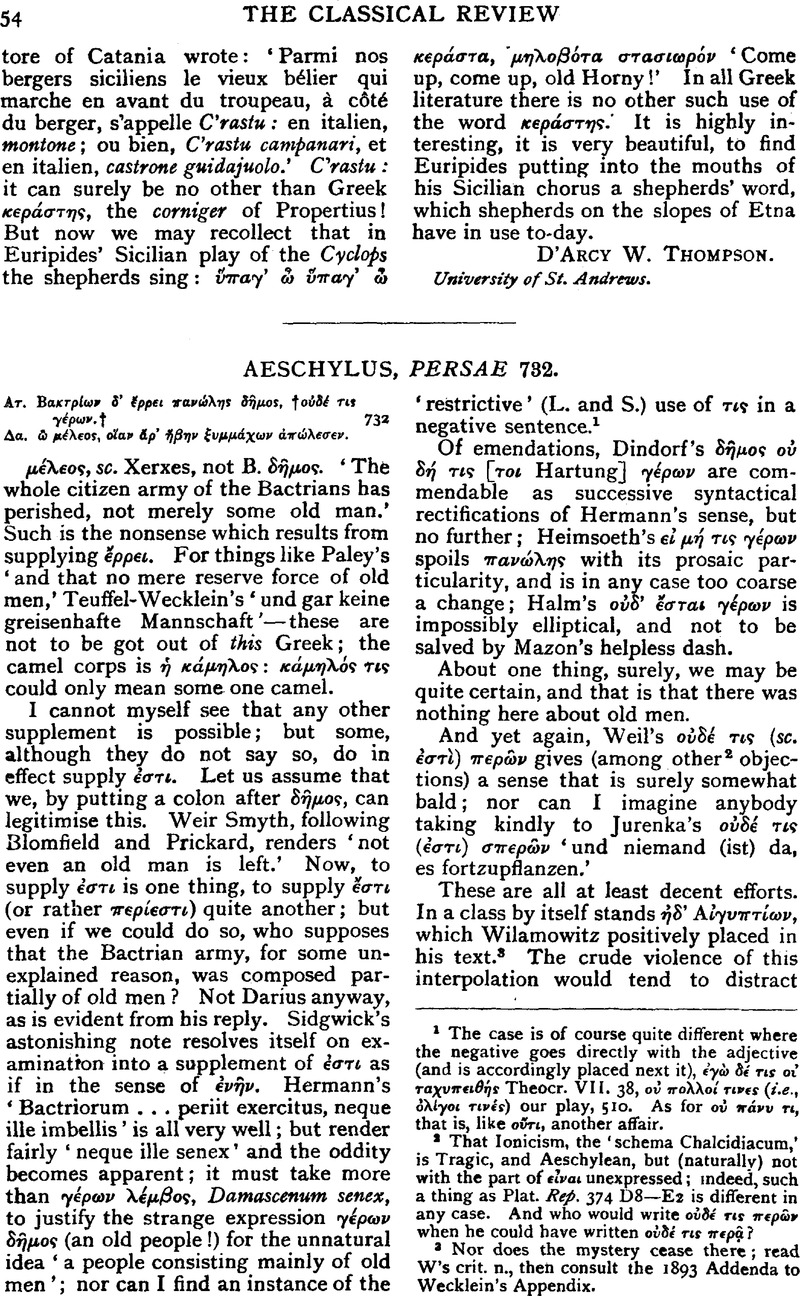No CrossRef data available.
Article contents
Aeschylus, Persae 732
Published online by Cambridge University Press: 27 October 2009
Abstract

- Type
- Review Article
- Information
- Copyright
- Copyright © The Classical Association 1932
References
page 54 note 1 The case is of course quite different where the negative goes directly with the adjective (and is accordingly placed next it), γὼ δ τις οἰ ταχνπειθς Theocr. VII. 38, οὐ πολλο τινες (i.e., λγοι τινς) our play, 510. As for οὐ πνυ τι, that is, like οὔτι, another affair.
page 54 note 2 That Ionicism, the ‘schema Chalcidiacum,’ is Tragic, and Aeschylean, but (naturally) not with the part of εἰναι unexpressed; indeed, such a thing as Plat. Rep. 374 D8—E2 is different in any case. And who would write οὐδ τις περν when he could have written οὐδ τις περᾷ?
page 54 note 3 Nor does the mystery cease there; read W's crit. n., then consult the 1893 Addenda to Wecklein's Appendix.
page 55 note 1 First proposed by me at a meeting of the Oxford Philological Society, February 27, 1931.


